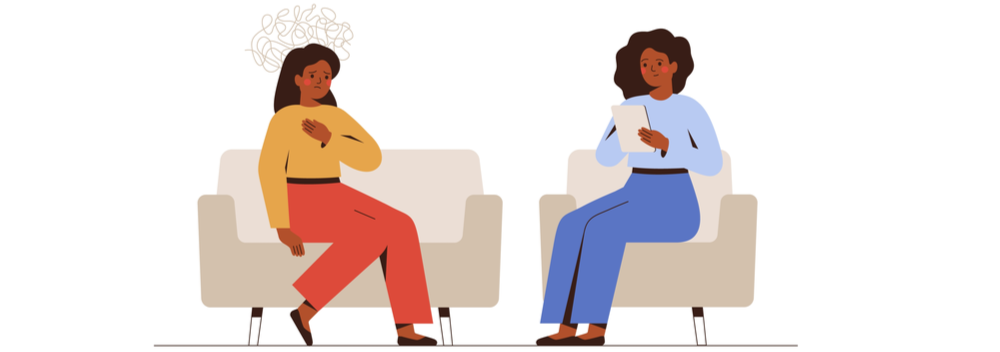Four HR visionaries on the importance of mental health support teams
- 6 Min Read
HRD Thought Leader Chuck Heaton and fellow HR leaders outline the importance of building a personal support team
- Author: Chuck Heaton
- Date published: Nov 2, 2021
- Categories

In February 2020, four seasoned HR executives found themselves at a unique place in their careers: unemployed. In little time, job opportunities at the executive level suddenly dried up and everyone was focused on surviving the pandemic. The four leaders ‐ Chuck Heaton, Chuck Kemper, Jason Anderson and Sanjay Harrichand ‐ had been affected by a combination of leadership changes, mergers, and an overall downturn in the industries in which they worked.
Through discussions and meetings over months, gradually the individuals became tightly knit collaborators, creating editorial content and podcasts on themes including ways of working, leadership pipelines and healthy workplace assessments with HRD Connect. However, the collaboration progressed as the group found they could rely on each other for personal and professional help, offering an example of how beneficial individual support teams can be in current conditions.
Before we became collaborators, our paths had crossed occasionally at conferences or networking meetings, but we did not know each other well. We came together by the efforts of Jason Anderson, who reached out individually to us and we started developing our own personal support team.
In June 2020, a local entrepreneur in Houston launched a project in conjunction with HR Houston to provide career counselling services inside one of his furniture stores. Several HR professionals volunteered our services to help professionals with resumes, LinkedIn profiles and interview skills. The four of us volunteered and we began building our relationship.
Our back story aside, the focus in this piece will be an overview of the benefits of having both an individual support team, as well as detailing how leaders can create support groups within their organisations.
Mental health and stigmas in today’s world
We all have a role to play in dispelling the stigmas associated with mental health issues. Most often, stigmas are born of ignorance, so if you find yourself judging others unfairly when they relate their personal struggles with their mental health, it’s a call to get educated. First and foremost, mental health is not a sign of weakness or something that must be shunned.
Most importantly, there is help out there for professionals because very rarely can an individual deal with these matters on their own. Societal stigmas may prevent professionals from getting the help they need, and that’s where mental health support groups can play a significant role. They provide a safe place for professionals to discuss their situation and receive help and support.
Consider that nearly 60% of U.S. employees experienced adverse mental health symptoms last year, and yet eight in 10 workers did not seek treatment due to shame (HBR, Jen Porter, Bernie Wong, Kelly Greenwood). That is a frightening statistic when you consider what the alternatives were for these unfortunate victims of society’s ignorance.
The benefits of a support group or dedicated team
There is a strong case for why social support is often considered a key component of great psychological health. In essence, social support is what a support group is appropriately designed for, be it through friends and family or like in our case, through a bunch of complete strangers banded together around a common cause of similar everyday worries, feelings, and thoughts, spurred on by the pandemic’s pressures and an economic meltdown.
Some benefits of participating in a support group may include:
- Feeling more empowered, in control and hopeful for the future
- Reducing feelings of distress, depression, anxiety, or fatigue
- Feeling less isolated or judged for seeking out support
- Having a trusted circle where you can be honest about your feelings
- Improving skills to cope with personal and professional challenges
- Experiencing the joy of encouraging others
Support teams in the workplace
Having an employee assistance programme (EAP) only is no longer enough in helping to combat the effects of mental health issues on employees. Creating an employee resource group (ERG) is a great option for creating a support team for those who need the connection, support and guidance to simply cope with issues related to mental health.
Workplace programmes, despite the obvious need, are not widely available. If ever there was a business case for leaders to take the issue of mental health more seriously, it is the cost of not doing anything. Each year, mental health issues cost companies billions of dollars. The pandemic is only likely to exacerbate the situation. ERGs can be a very simple solution to providing more support in the workplace.
It’s important to make sure that the ERG does not create a situation where members are discriminated against because of their membership. The key to resolving this is to educate everyone about mental health matters. ERGs, when executed well, will provide a community for employees who share the same experiences, promote inclusion and diversity and ultimately play a significant role in combatting the ravages of mental health conditions on employees and their families.
In hybrid working conditions, ERGs can help professionals particularly when the divisions between personal life and professional life have become blurred, exacerbating existing pressures and potentially creating new ones.
Join us for our next article regarding mental health, where we will dive into the details on how our own support came together and has become an important part of our professional careers.
Authors: Sanjay Harrichand is the CHRO of Stratum Reservoir and an international HR executive from South Africa, with over 20 years of experience leading HR teams in the mining and energy sectors.
Chuck Kemper is the CHRO for the American Bureau of Shipping and a global HR executive. Chuck has been leading the HR function in organisations for the last 25 years.
Chuck Heaton is CHRO for Camin Cargo and an HRD Thought Leader. He has been leading HR teams on the global stage for over 30 years.
Jason Anderson is the HR VP at U.S. Physical Therapy, Inc. with deep domain experience in compensation, accounting and finance. Jason has spent the last ten years leading HR teams in multinational companies









